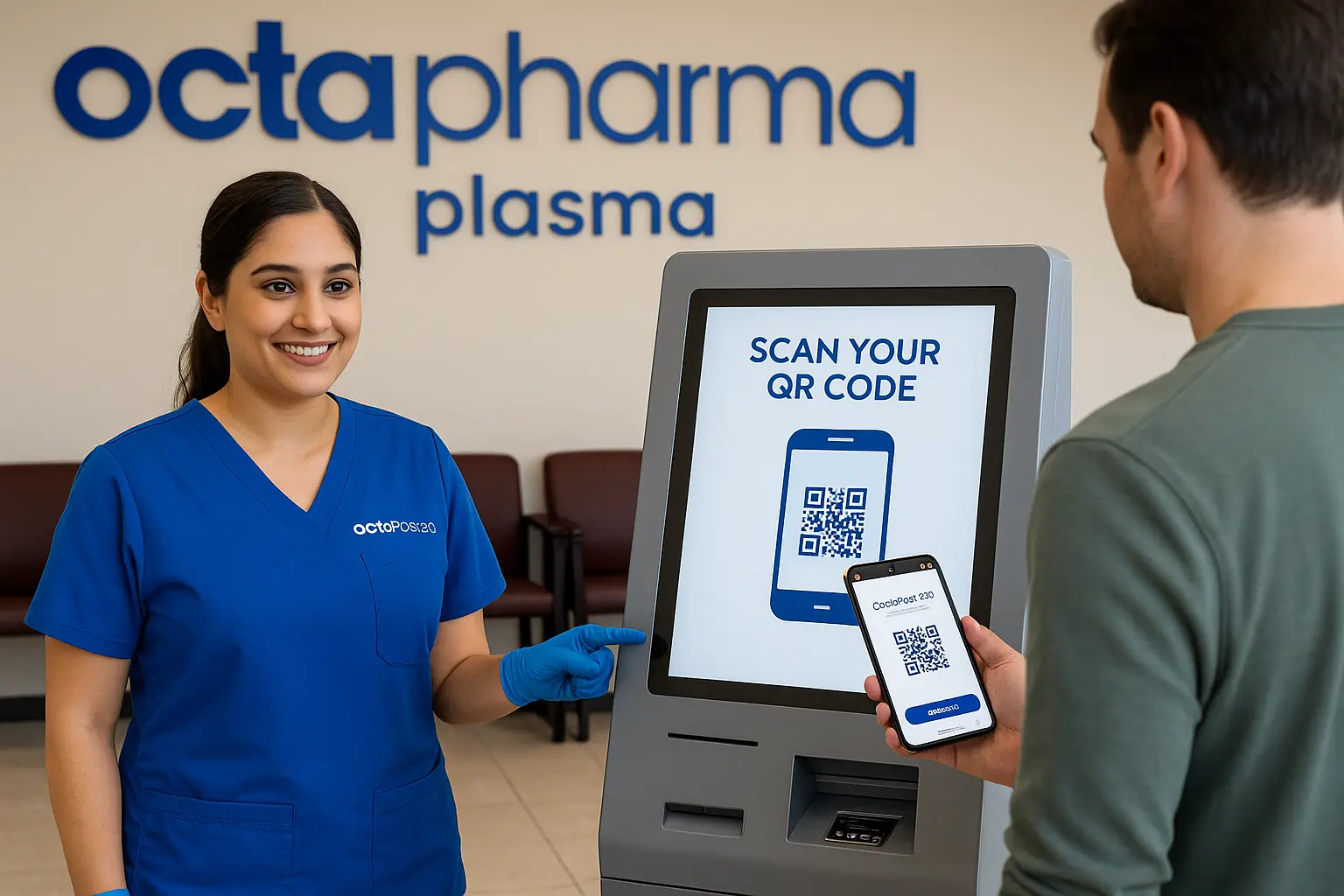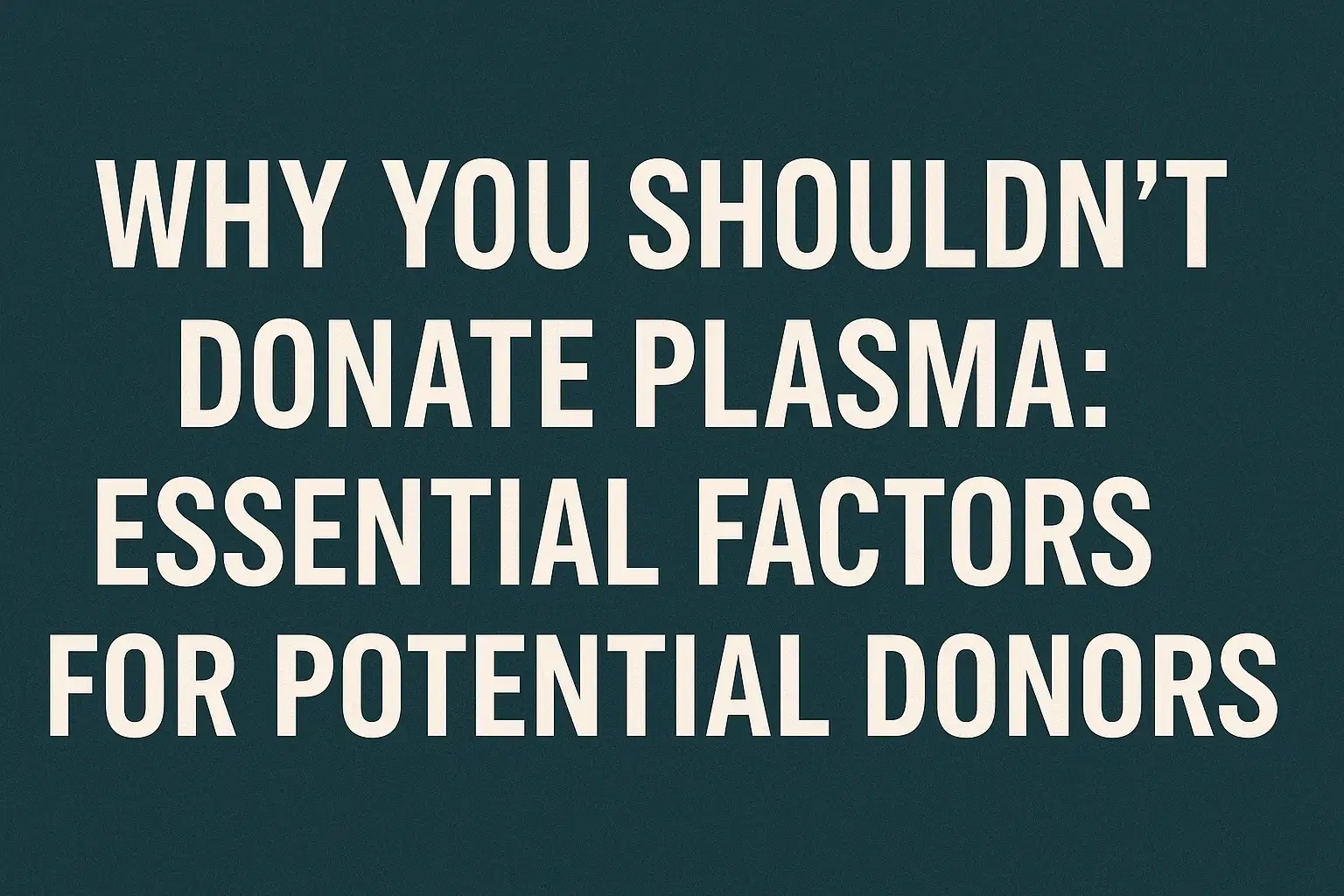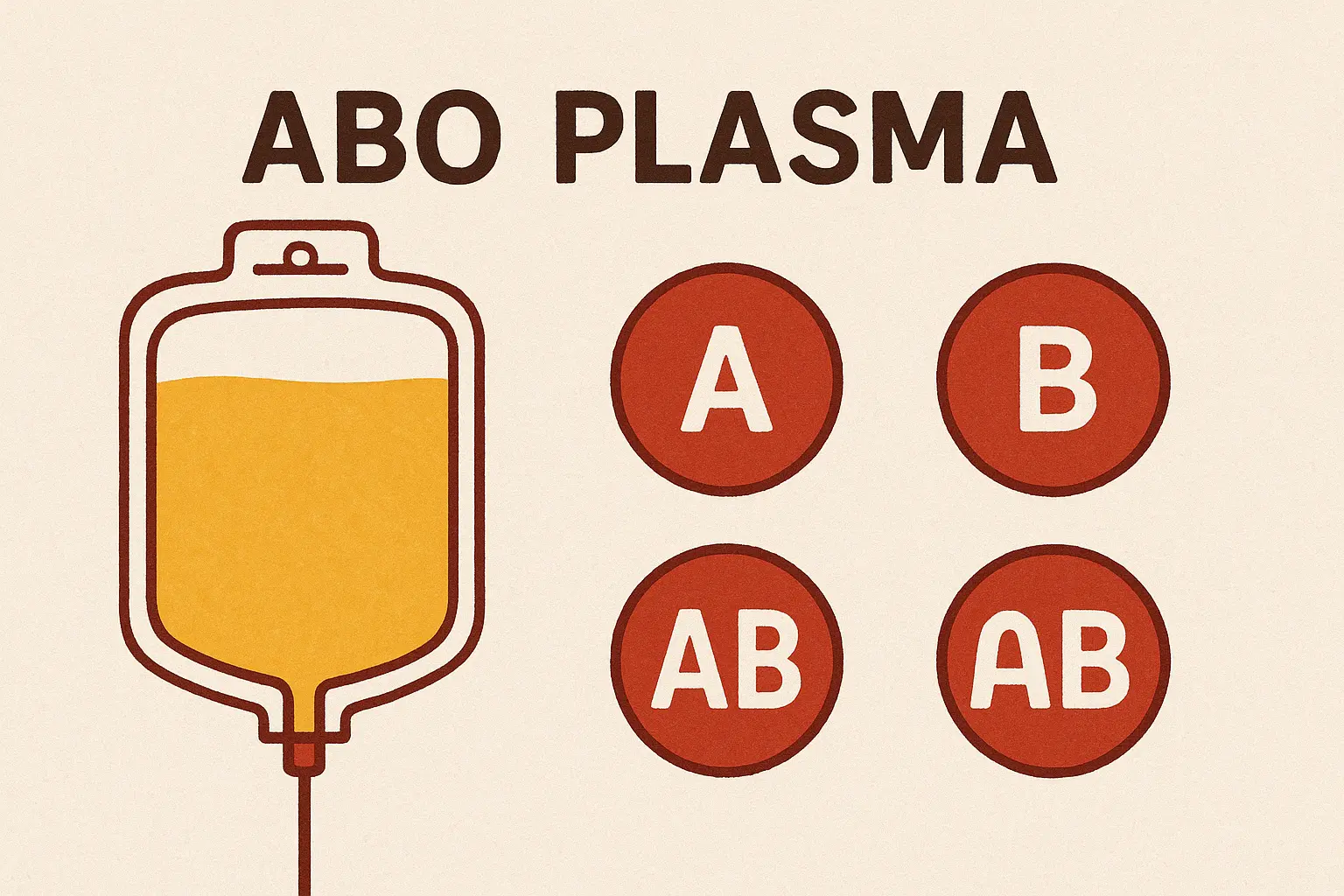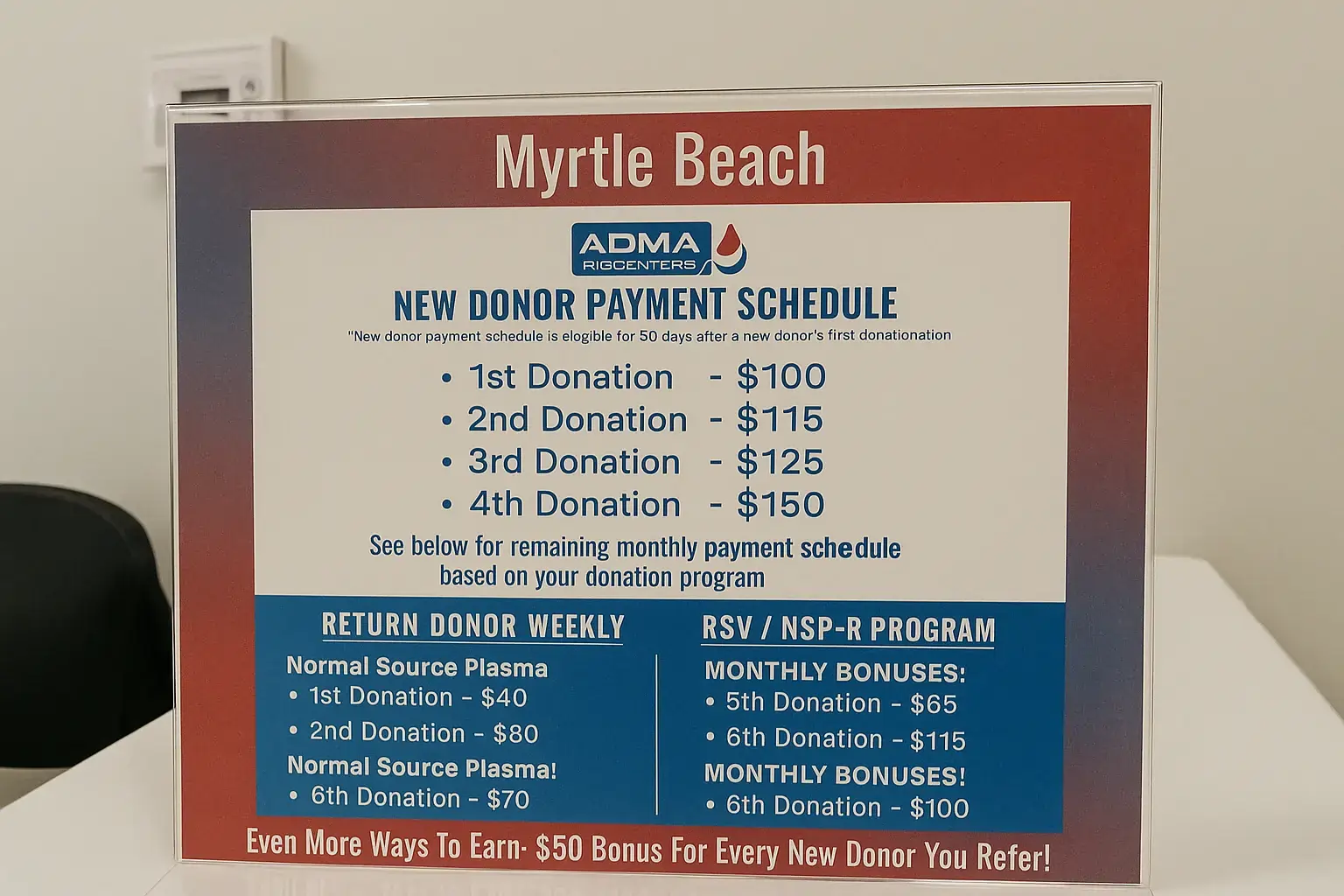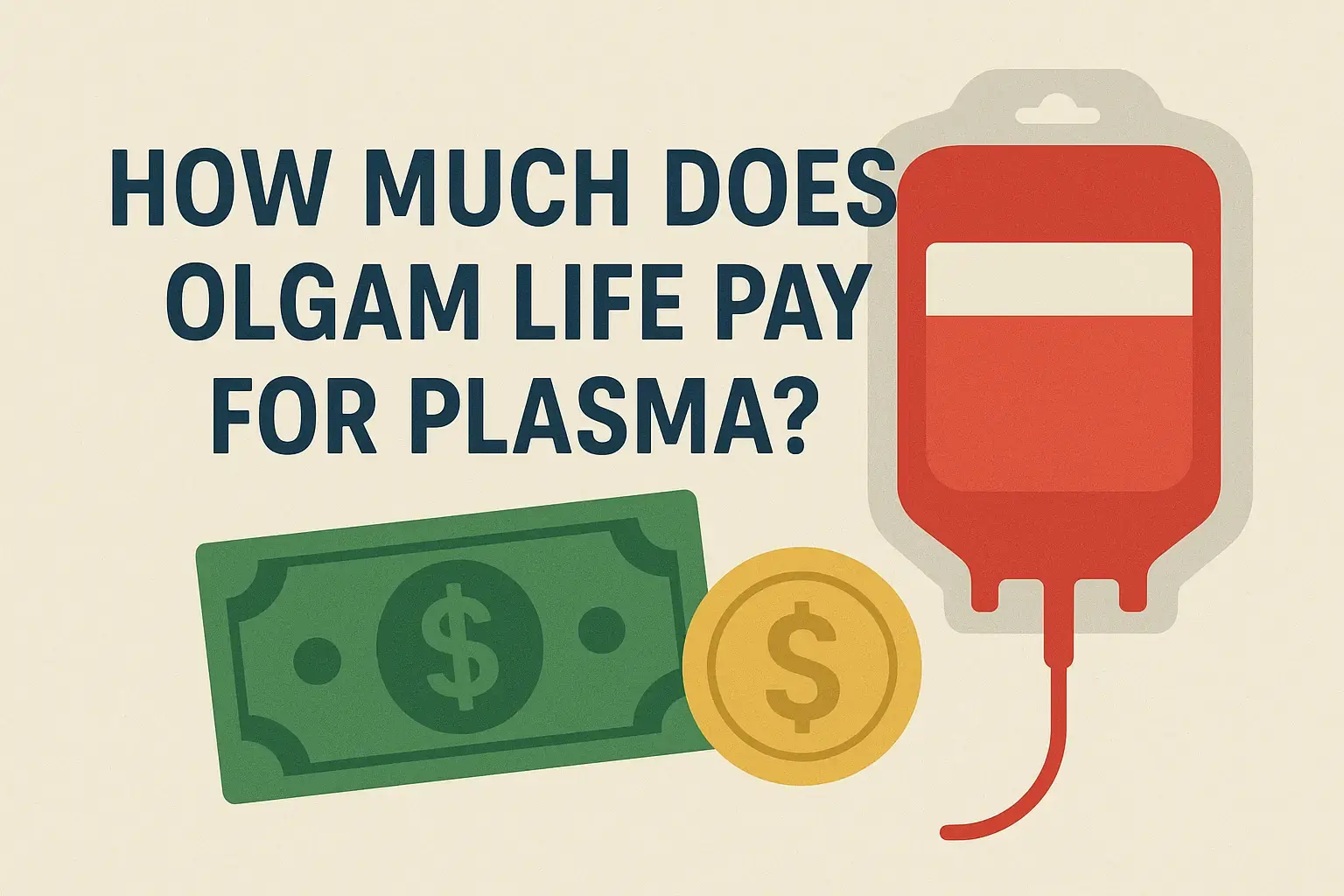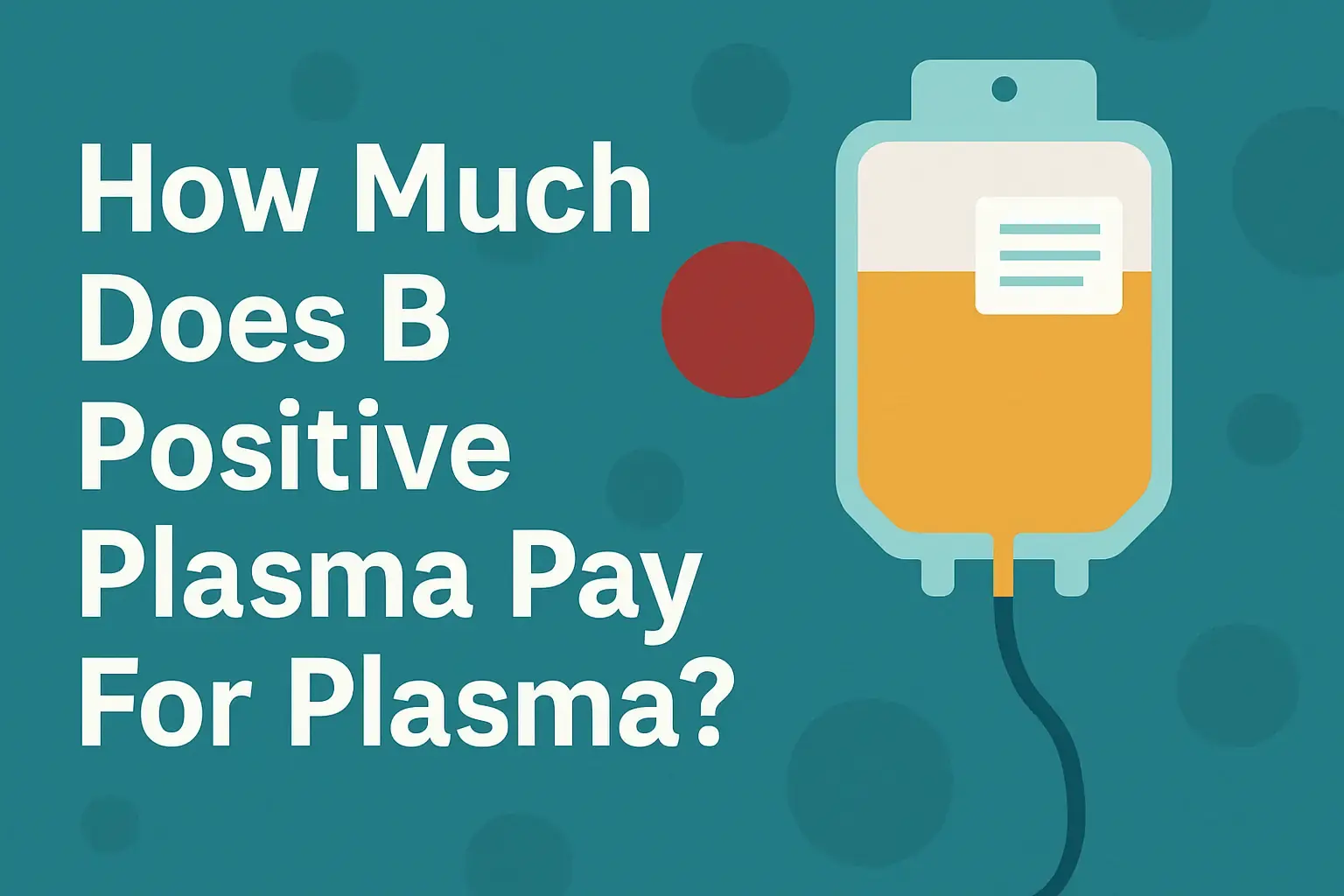What Disqualifies You from Donating Plasma?
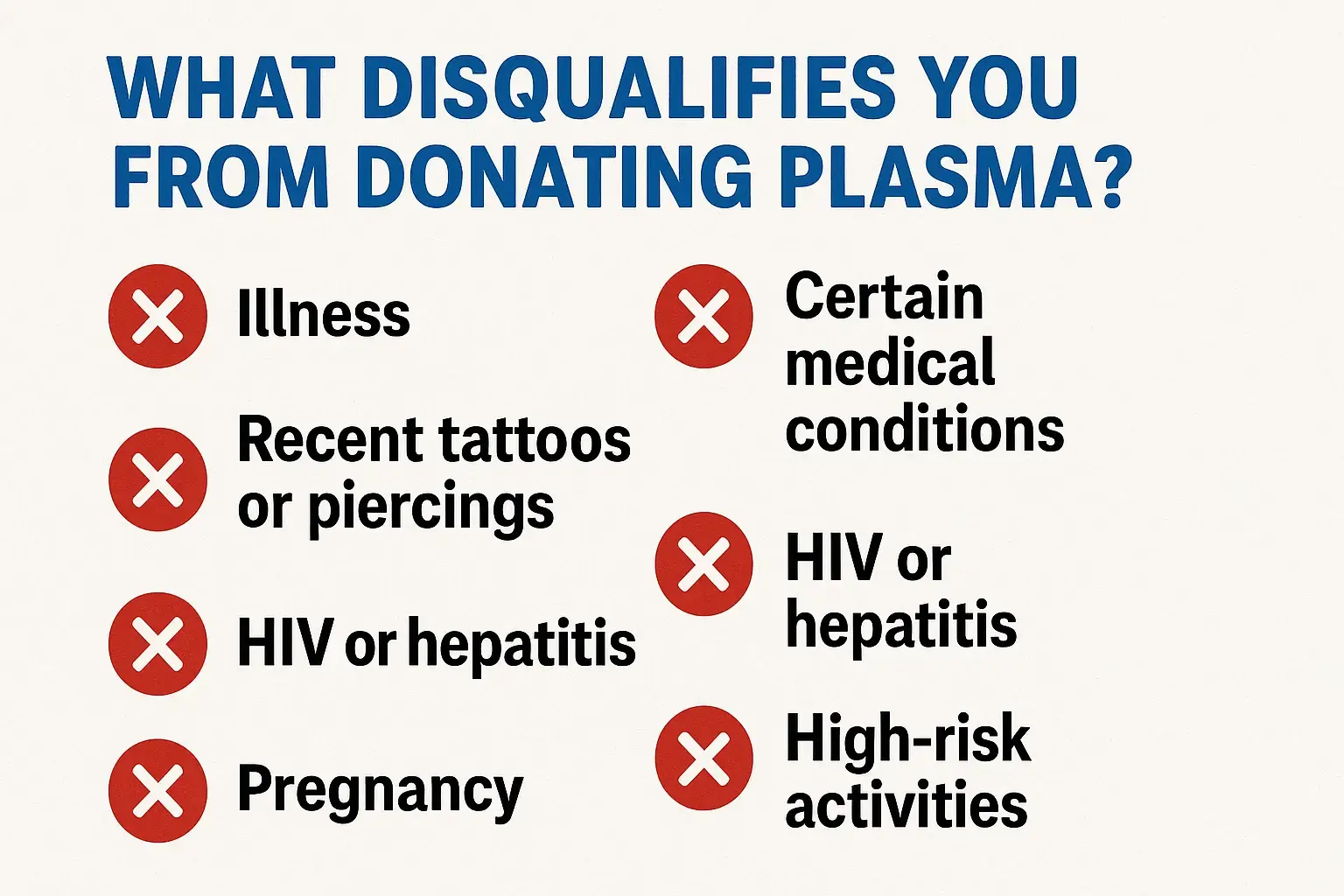
Table of Contents
What is a Temporary Deferral?
A temporary deferral means you are temporarily ineligible to donate plasma. This can range from 24 hours to several months, depending on the issue. Temporary deferrals are common and often reversible once the underlying condition or risk is resolved. These deferrals protect both the donor and potential plasma recipients.
What reasons cause a Temporary Deferral when donating plasma?
Common reasons: These are conditions that frequently result in temporary deferral and typically resolve with time or treatment.
- Alcohol or recreational drug use within 24 hours
- Fever, flu, or any active infection
- Dehydration or low hematocrit levels on the day of donation
- Vaccinations (especially live vaccines) within the past few weeks
- Recent dental work or oral surgery (typically deferred 72 hours)
- Skin conditions near the venipuncture site (acne, rash, open wound)
- Pregnancy or breastfeeding (must wait several months postpartum)
- Antibiotic or steroid use, depending on the medication and condition
- Recent travel to malaria-risk regions (typically deferred for 12 months)
Uncommon or conditional reasons: These can vary by plasma center policy and medical director discretion.
- Diabetes that is uncontrolled or treated with certain medications
- Use of Ozempic or GLP-1 agonists for weight loss or diabetes
- Minor surgical procedures or biopsies
- Recent tattoos, piercings, or microblading (3–12 month deferral)
- Elevated blood pressure or pulse rate on donation day
What is a Permanent Deferral?
A permanent deferral means you are disqualified from ever donating plasma again. This is typically due to serious health risks, high-risk behaviors, or the potential to transmit communicable diseases. In many cases, the deferral is federally mandated and cannot be appealed.
What reasons cause a Permanent Deferral when donating plasma?
- Confirmed HIV or Hepatitis B/C infection
- History of intravenous drug use (non-prescription)
- Diagnosis of certain blood cancers (e.g., leukemia, lymphoma)
- Active herpes outbreaks with lesions present
- Untreated syphilis or confirmed STIs with no medical follow-up
- History of clotting disorders, including DVT or pulmonary embolism
- Autoimmune diseases with systemic involvement (e.g., lupus, MS)
- Receiving unlicensed vaccines or experimental treatments
Medications that may result in permanent deferral:
- Plavix (clopidogrel) and other anticoagulants
- Accutane (isotretinoin) with specific timelines
- Human growth hormone (if derived from cadaver sources)
- Unregulated or black-market substances
Tips To Avoid Deferrals When Donating Plasma
Many deferrals are preventable with preparation. Use these tips to reduce your chances of being turned away:
- Eat a high-protein, iron-rich meal 2–3 hours before your appointment
- Drink 2–3 glasses of water an hour before donating
- Avoid caffeine, alcohol, and heavy exercise on donation day
- Disclose all medications and supplements honestly
- Call your center ahead of time if you’ve recently been sick, traveled, or had a tattoo
- Check your blood pressure and pulse regularly if you're borderline
If you’re deferred, ask staff if the deferral is temporary or permanent, and if follow-up is possible. You may be eligible again after documentation, treatment, or a waiting period.
Frequently Asked Questions
Can I donate plasma with tattoos? Yes, if they are more than 4 months old and fully healed. Some states may enforce a 12-month wait if the parlor isn’t regulated.
Can I donate with diabetes? Yes, if it’s well-controlled and you’re not taking banned medications like insulin derived from animal sources.
Does birth control affect eligibility? No, oral contraceptives and IUDs do not disqualify you from donating plasma.
Cold or flu symptoms? Wait at least 48 hours after symptoms resolve. You must be symptom-free and fever-free without medication.
What if I have herpes? You may donate if there are no active sores or symptoms. Active outbreaks require temporary deferral.
Can I donate on my period? Yes. Your menstrual cycle does not impact eligibility unless accompanied by anemia or low iron.
If I’m deferred once, can I try another center? If the deferral is temporary and not flagged in NDDR (National Donor Deferral Registry), you can attempt donation at another location. Permanent deferrals are shared across all centers.
